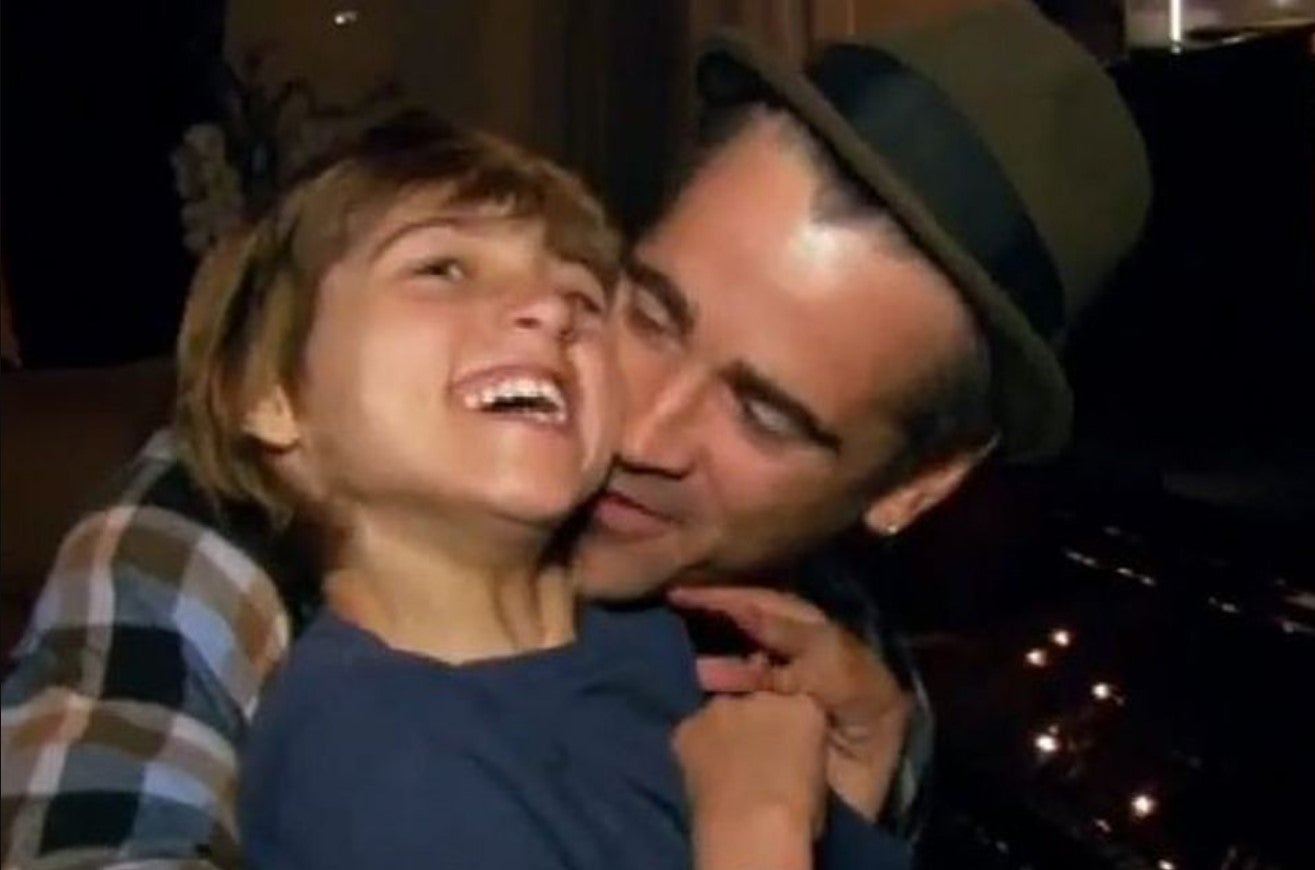
Actor Colin Farrell has opened up about the difficult decision to move his son James, who has Angelman syndrome, into a long-term care facility.
The Oscar-nominated star of The Banshees of Inisherin, who recently won a Golden Globe for HBO series The Penguin, has previously spoken about his son’s journey with the rare disorder which causes developmental delays and affects the nervous system.
In an interview this week the actor, 48, revealed he and his ex-partner Kim Bordenave are exploring options to find a long-term home for James, 21, in case anything should happen to them.
The parents fear James would become a ward of the state if both of his caregivers were taken ill or killed in an accident.
He told Candis Magazine: “We want him to find somewhere where he can have a full and happy life, where he feels connected.”
Farrell also revealed he is starting the Colin Farrell Foundation to provide support for people and families with intellectual disabilities through advocacy, education, and innovative programmes to honour his son, who is nonverbal.

Farrell with his son when he was younger (Ellen Show)
What is Angelman syndrome?
Angelman syndrome is a rare genetic condition that affects the nervous system and causes severe physical and learning disabilities, according to the NHS.
It is diagnosed through genetic testing to see if any chromosomes or pieces of chromosomes are missing, looking at changes in the UBE3A gene.
Those diagnosed with Angelman syndrome are likely to need support throughout their life.
What are the characteristics of Angelman syndrome?
A child with Angelman syndrome will begin to show developmental delays at six to 12 months old and may not begin sitting or babbling at the same time as other children.
Later they may struggle with speech and have difficulty walking because of issues with balance and co-ordination. Farrell previously revealed he was moved to tears when his son James took his first steps shortly before his fourth birthday.
Some children may also experience seizures.
The syndrome is also commonly associated with several distinctive behaviours, although a child with the condition may not exhibit all of them.
These include frequent laughter and smiling, being easily excitable, restlessness, having a short attention span, having trouble sleeping and being fascinated with water.

Actor Colin Farrell with his close friend Emma Fogarty, after running in the Irish Life Dublin Marathon in October 2024 to raise money for people living with Epidermolysis Bullosa (EB), a rare genetic skin condition (PA)
How do you manage Angelman syndrome?
Anti-epileptic medication can be used to help control seizures in children who experience them.
Physiotherapy can also help with mobility and coordination issues and help prevent permanent stiffening of the joints as people with Angelman syndrome get older.
Communication therapy can also help those who are nonverbal to communicate through sign language, Makaton and other systems.
